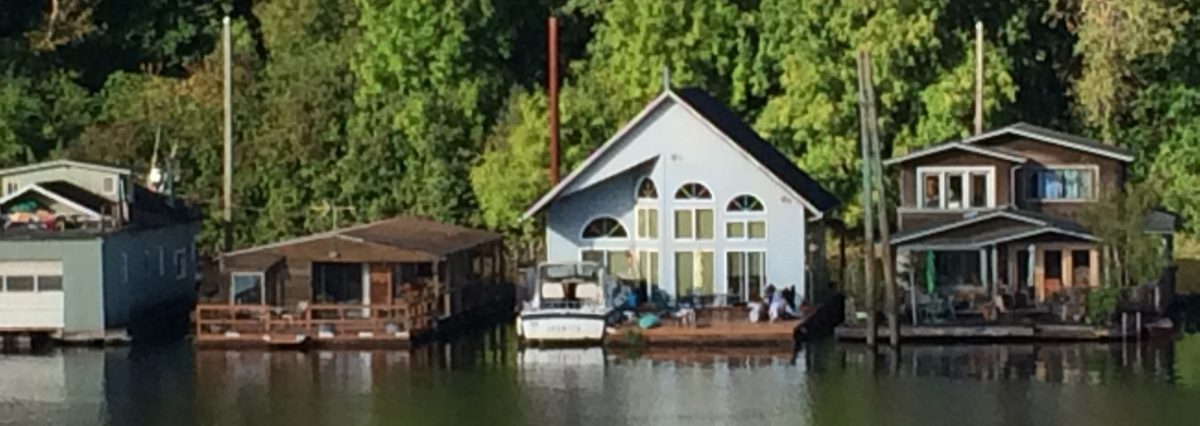What if I don’t fall under the category of floating homeowners that this website is geared to help?
If you answered “no” to any of the quiz conditions from the Home Page, look below to help point you in the right direction for assistance:
If you are renting a floating home from the home’s owner, then normal Oregon Statute Landlord-Tenant Law Chapter (ORS) 90.100 – 90.493 applies to your circumstance. Oregon Statute Law Chapter (ORS) 90.500 – 90.830 and nearly all of the information contained on this website will not apply to you.
If you own a floating home and also own the slip to which it is moored, then your situation is similar to a condominium situation where you will pay monthly HOA (Home Owners Association) fees to an association or board, and must follow the bylaws created by the HOA. Oregon Statute Law Chapter (ORS) 90.500 – 90.830 and nearly all of the information contained on this website will not apply to you.
If your moorage has 3 or fewer floating homes, then ORS 90.100 (28) excludes you from the specific floating home ownership protection laws. Oregon Statute Law Chapter (ORS) 90.500 – 90.830 and nearly all of the information contained on this website will not apply to you. However, seek legal advice from an attorney because while ORS 90.429 states that you can be evicted without cause, it does require 180 days notice to terminate.
While Oregon has more floating homes than any other US state, floating homes exist in other states – California and Washington state to name a few. Oregon Statute Law Chapter (ORS) 90.500 – 90.830 and nearly all of the information contained on this website will not apply to you. If you own a floating home in another state – check out these resources.
Other questions…
I live full-time in a boat which I own, but I rent the slip. The boat is my home. Can it be considered a Floating Home?
A floating home is defined by Oregon law as:
ORS 830.700 (4): “Floating home” means a moored structure that is secured to a pier or pilings and is used primarily as a domicile and not as a boat.
That said, there is case law on file in Oregon where liveaboards were considered floating homes during an appeal under Ramsum v Woldridge. Contact an attorney with questions about your specific situation if you live full-time on a boat. Depending on the situation, you may have some protected rights. We have not yet looked into liveaboard rights.
If you live in a boat that cannot be moved under its own power (example: it’s been your home for a long time and hasn’t run in 50 years), and you are seeking legal advice, please contact an attorney. We have no such experience with that. Although we can tell you that the US supreme court in 2013 ruled in Lozman v. City of Riviera Beach, Florida, in favor of a homeowner whose floating home was destroyed under maritime/boat laws even though it was a floating home and not a vessel. So, some language does exist from the US Supreme court decisions which discuss what a vessel and floating home are which does set some precedent for a liveaboard to be called a floating home if you are a full-time resident and the boat has no means of self-propulsion, but that is not a guarantee of protective floating home owners rights under ORS. So, again, contact an attorney – we are not lawyers.
For further reading about the supreme court case:
http://www.scotusblog.com/case-files/cases/lozman-v-city-of-riviera-beach-florida-2/
